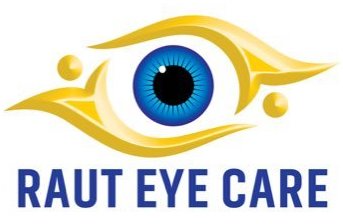When it comes to eye health, there are various conditions that can affect our vision. One such condition is a vitreous humor-related problem, which may require a surgical intervention known as vitrectomy. In this article, we will explore vitrectomy surgery in simple terms, helping laypeople understand the procedure, its purpose, and what to expect.
What is Vitrectomy Surgery?
Vitrectomy surgery is a procedure performed by ophthalmologists to treat conditions affecting the vitreous humor, a gel-like substance that fills the interior of the eye. This surgery involves removing the vitreous humor, which may be clouded or causing visual disturbances, and replacing it with a clear saline solution.
Why is Vitrectomy Performed?
Vitrectomy is typically recommended to address several eye conditions, including:
Retinal Detachment: In this condition, the retina becomes separated from the underlying tissue, leading to vision loss or distortion. Vitrectomy can help reattach the retina and restore vision.
Diabetic Retinopathy: Patients with advanced stages of diabetic retinopathy may require vitrectomy to remove blood or scar tissue that obscures vision.
Macular Hole: A macular hole is a small opening in the center of the retina, resulting in blurry or distorted vision. Vitrectomy can repair the hole and improve visual acuity.
Epiretinal Membrane: An epiretinal membrane is a thin layer of scar tissue that forms on the surface of the retina, causing vision problems. Vitrectomy can remove the membrane, improving vision clarity.
The Vitrectomy Procedure:
Vitrectomy surgery is typically performed in a sterile operating room under local or general anesthesia, depending on the patient's condition and surgeon's preference. The steps involved in the procedure are as follows:
Incisions: The surgeon creates small incisions in the eye to gain access to the vitreous humor. These incisions are usually self-sealing and do not require sutures.
Removal of Vitreous Humor: Using delicate instruments, the surgeon carefully removes the cloudy or diseased vitreous humor. This step allows the surgeon to access and address the underlying issue affecting the eye.
Additional Procedures: Depending on the specific condition being treated, the surgeon may perform additional procedures during the vitrectomy. For example, laser therapy or the insertion of gas or silicone oil may be necessary to repair a retinal detachment.
Saline Solution Replacement: Once the necessary repairs or treatments are completed, the surgeon replaces the removed vitreous humor with a clear saline solution, maintaining the eye's shape and pressure.
Recovery and Postoperative Care: After the surgery, the patient may need to wear an eye patch temporarily. Eye drops and medications may be prescribed to prevent infection, reduce inflammation, and promote healing. Regular follow-up appointments will be scheduled to monitor progress and adjust treatment if needed.
Recovery and Expected Outcomes:
The recovery period after vitrectomy surgery can vary depending on the individual and the specific condition being treated. Some general guidelines include:
Vision Improvement: Over time, as the eye heals, improvements in vision should become noticeable. However, it may take weeks or months to fully regain optimal vision.
Physical Activity Restrictions: Patients are typically advised to avoid strenuous activities, heavy lifting, and activities that could increase eye pressure during the initial recovery period.
Follow-up Care: Regular follow-up visits with the ophthalmologist are crucial to monitor the healing process, address any concerns, and ensure the best possible outcome.


